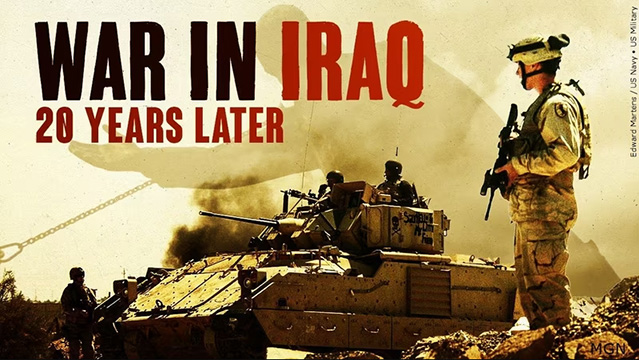
The U.S. rush to war against Iraq 20 years ago marked the worst strategic decision of any U.S. president in history, and the worst intelligence scandal as well, writes Melvin A. Goodman, a senior fellow at the Center for International Policy, a professor of government at Johns Hopkins University and a former CIA analyst.
We know exactly who made the decision to go to war, and we certainly know when and why that decision was made. The decision itself had nothing to do with weapons of mass destruction or with the bogus claim that Saddam was somehow involved in the tragedy.
The decision was about regime change.
CIA prepared a spurious intelligence estimate in October 2022, which served as the basis for the spurious speech that Secretary of State Colin Powell gave to the United Nations in February, 2003. Senior officials at the State Department tried to keep Powell from bivouacking at the CIA where the speech was drafted and pushed by senior Agency officials led by deputy director John McLaughlin.
What is in fact unknowable is whether honest leadership from Secretary of State Powell, CIA director George Tenet, CIA deputy director John McLaughlin, and a CIA willing to tell truth to power could have created more opposition to the war from the Congress, the media, and the public.
A meaningful retrospective would remind the American people of the efforts of the president, the vice president, the secretary of state, the secretary of defense, the national security adviser, as well as the director and deputy director of CIA, to create and employ a strategic disinformation campaign to convince Congress and the American people of the need for a war that ultimately took 4,600 lives of American soldiers and hundreds of thousands of Iraqi civilian lives.
Our motivation seems meaningless in that context; the campaign to manipulate American and global public opinion is dispositive and needs to be fully understood. By any standard, the Bush administration and its key officials throughout the policy and intelligence communities must be judged as reckless in the extreme.
Ironically, the elder Bush, our 41nd president, argued in the 1990s that the misuse of U.S. military power could lead to the breakup of the Iraqi state and compromise the balance of power in the Middle East and the Persian Gulf. Even more ironic, Joe Biden, our 46th president, was belittled for championing the “soft partition” of Iraq into a Kurdish north, a Sunni west and center, and a Shiite south, which describes the current state of Iraq.
A serious Iraqi war retrospective would discuss the issue of war crimes, not only the CIA’s programs of torture an abuse and extraordinary renditions, but also the memoranda from the Department of Justice that sanctioned acts of torture and abuse, and — above all — whether the president himself and his senior leadership committed “crimes against the peace.”
It would be “difficult to peel back all the layers of deceit that enveloped the war,” concludes Melvin A. Goodman.
read more in our Telegram-channel https://t.me/The_International_Affairs

 11:43 28.03.2023 •
11:43 28.03.2023 •






















